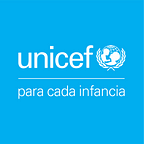New paradigms, new ways of building a community
Total Community-Led Sanitation, SANTOLIC
Whenever customs and habits are deeply rooted, they can be very difficult to change, at the personal and at the social level. However, in San Marcos, close to the Mexican border, rapid and sustainable changes have been taking place in a matter of months like never before, improving the quality of life and health of the population, especially its children, thanks to the Total Community-Led Sanitation methodology, SANTOLIC, promoted by UNICEF.
In Guatemala, three out of ten people do not have access to safe water and five out of ten do not have access to proper sanitation. The lack of adequate water, sanitation and hygiene systems particularly affects children in rural areas, aggravating diseases, mortality and child malnutrition. Half of the children under age five in Guatemala suffer from chronic malnutrition. Among the indigenous, chronic malnutrition affects up to eight out of ten children. The damage is irreparable.
According to Susan Miranda, facilitator of the SANTOLIC methodology, the main factors that lead a community to decide to adopt new hygiene habits are cultural and economic. According to cultural patterns in certain places, people view defecating on the ground and unsanitary organic waste management as something normal. On the other hand, there are communities that are willing to adopt new habits but do not have the necessary financial resources to make the required changes, such as building adequate latrines or restrooms.
UNICEF and its partners are implementing the SANTOLIC methodology to generate changes in sanitation and hygiene habits. Communities are motivated to change their behavior to end open-air defecation and they are empowered to solve sanitation problems permanently. This model will be implemented in 120 communities and will soon be taken to scale to reach all families, especially the children in the poorest and most vulnerable communities.
One of the most important initiatives communities are expected to adopt in the framework of the SANTOLIC methodology is incorporating latrines into homes, ensuring that the family uses them and that they are properly built.
Susan states that it should be stressed that the community is also a family. “If a member is not well, that affects everybody”.
Another interesting aspect of this methodology is that the community should take ownership of the project; it must make it its own and design and implement its own solutions. SANTOLIC only delivers and facilitates the model, but the community must decide if it wishes to adopt it and it must internalize the new practices.
The SANTOLIC methodology comprises several stages. The first one is pre-activation, which consists of making the model known to the community leaders in different areas, for them to motivate the population in turn and generate a total change. One of the principles of this system is that everybody must change their habits, because if a single person does not, the pollution continues and the process will not achieve the desired results.
Next comes the activation stage, which requires the participation of all the families in the community and each of its members, including girls, boys and adolescents.
The facilitators subsequently provide support. This means supporting the solutions and proposals that come from the community itself. This is essential, since when a community has detected its problems and wishes to solve them and modify certain behaviors, and this comes from the inhabitants themselves, the change will take place naturally, unlike methods that seek to impose solutions and actions that often have no bearing on what a population feels are its most pressing problems.
Finally, the process ends with a certification, which consists of recognition of a community as user of the SANTOLIC methodology, which is also known as a “FIDAL Community”, which is the Spanish acronym for Ending Open-Air Defecation.
Some members of the communities that are implementing the system mentioned that pollution and the diseases it causes are among the main reasons for changing their hygiene habits. They are concerned about health, especially their children’s health, who are most vulnerable to a polluted environment and whose physical ailments give rise to a series of problems, including monetary ones, such as paying for a doctor, medicines and others. In this regard, a clean environment leads to health and development.
Neli de León, one of the inhabitants, sums up her feelings regarding the SANTOLIC initiative as follows: “I came to live here four years ago and this is the first time I hear that somebody is concerned about our families’ well-being, and I am very thankful for that”.
